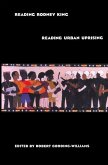Theodore Dwight Weld's "American Slavery as It Is" is a seminal work in the abolitionist literature of the 19th century, meticulously cataloging the harsh realities of slavery in the United States. Weld employs a dramatic and persuasive literary style, utilizing vivid anecdotes, firsthand testimonies, and statistical evidence to expose the moral depravity and inhumanity of the institution of slavery. Grounded in the evangelical abolitionist context of the time, the book serves both as a call to action and a poignant indictment of the societal and legal structures that perpetuated this injustice, seeking to awaken the conscience of a nation. Theodore Dwight Weld, a prominent abolitionist and a leading figure in the movement, was deeply influenced by his Quaker upbringing and the Second Great Awakening, both of which emphasized equality and social justice. Weld's direct experiences with slavery, as well as his passionate commitment to the cause, fueled his extensive research and gave rise to this pivotal work. His collaboration with other abolitionists, including his wife, Angelina Grimké, further highlights the collective effort to bring the grim truths of slavery to light. "American Slavery as It Is" is essential reading for anyone seeking to understand the moral fervor that drove the abolitionist movement and the personal sacrifices made in the name of justice. Weld's incisive arguments and thorough documentation not only illuminate the brutal realities of enslaved life, but also inspire contemporary readers to reflect on the legacies of slavery and the enduring struggle for civil rights.
Dieser Download kann aus rechtlichen Gründen nur mit Rechnungsadresse in A, B, BG, CY, CZ, D, DK, EW, E, FIN, F, GR, H, IRL, I, LT, L, LR, M, NL, PL, P, R, S, SLO, SK ausgeliefert werden.
Hinweis: Dieser Artikel kann nur an eine deutsche Lieferadresse ausgeliefert werden.









